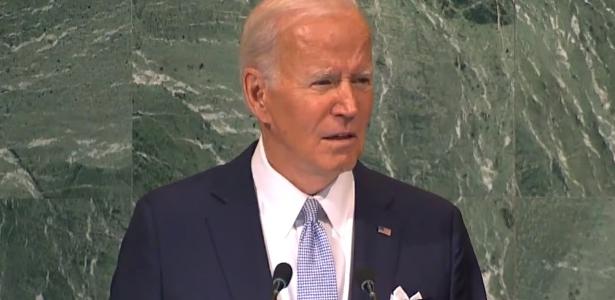Last week, one of the most important documents for followers of US foreign policy was released: the National Security Strategy (NSS).
Considered one of the main sources for mapping the government’s direction in the international arena, the document is produced periodically by the executive branch for Congress and generally lists the nation’s major security concerns and the administration’s plans to address them.
During the Trump administration, a single NSS was released. In the December 2017 article, four pillars were described as priorities at the time: 1) protecting the American people and way of life; 2) promoting American prosperity; 3) preserving peace through force; and 4) promoting American influence.
In contrast, in the 2022 document produced by the Biden-Harris administration, some elements stand out. First, the NSS speaks of an “age of competition and shared challenges” in terms of the structure of the international system and defines the nature of this competition as, above all, “between democracies and autocracies.”
From the US government’s perspective, according to the document, action should be directed at at least 3 fronts: 1) investing in its own capabilities to maintain international competitiveness, including strengthening democracy and industrial modernization; 2) use diplomacy to build strong alliances around the world; 3) To develop and strengthen the military strength of the country.
In addition to “defeating China” and “containment of Russia” and terrorism, the document specifically points to concerns about transnational challenges such as climate and energy security, infectious diseases and biosecurity, food insecurity, arms control and non-proliferation.
A concern for maintaining leadership in the eyes of the global order is present throughout the document, which focuses on investments in cyber security or technology while shaping the “rules of the game”. Based on trade.
Reading the NSS of the Biden-Harris administration brings to mind two fundamental insights about the times we live in the world:
1) America openly recognizes that it is no longer capable of leading alone, but does not want to accept the narrative of hegemonic decline – to cope with this reality, they identify an important key in the word “modernization”;
2) It is increasingly difficult to separate the domestic sphere from the international sphere – the great challenges of relational symbiosis and national security, trust me, start at home.
Read the document in English: https://www.whitehouse.gov/wp-content/uploads/2022/10/Biden-Harris-Administrations-National-Security-Strategy-10.2022.pdf

“Internet evangelist. Writer. Hardcore alcoholaholic. Tv lover. Extreme reader. Coffee junkie. Falls down a lot.”






More Stories
Kamala has warned that democracy in America will be in danger if Trump wins
The world’s rarest donkey has been born at a zoo in the United Kingdom; Watch the video
Senators travel to America in search of best practices…